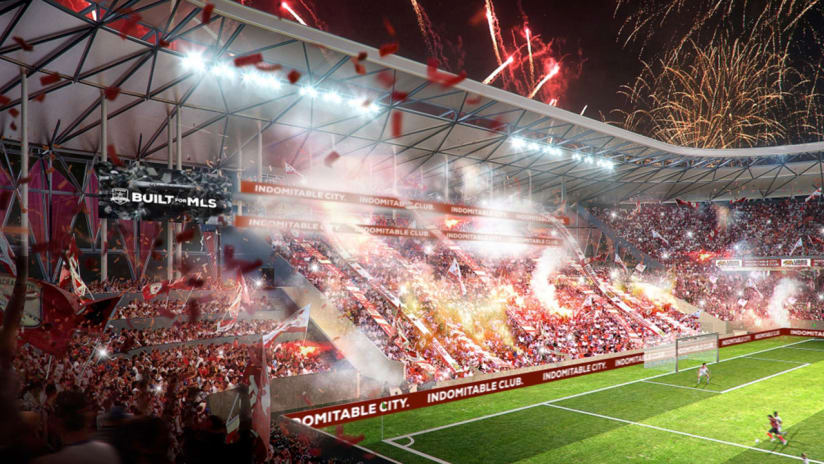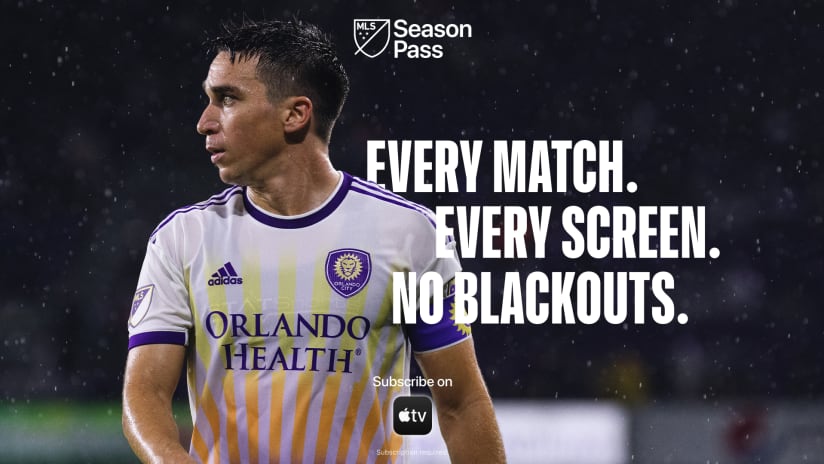There were 12 teams who met the February 2017 deadline to apply to be a new MLS franchise. Amongst those were newcomers to the soccer scene as well as existing lower league franchises and some cities that don’t even have a squad yet. Out of those 25, only a handful will be selected to join MLS. Who will be next?
This article breaks down each team and looks at their MLS potential.
Charlotte
Both Charlotte and North Carolina FC (out of Raleigh) are looking for MLS expansion. They tap a market that is currently a gap on the MLS map and Charlotte already hosts the NBA’s Charlotte Hornets and the NFL’s Carolina Panthers. Add in the fact that the investment group has ties to NASCAR, and the prospects look promising for Charlotte.
But Charlotte has struggled to settle on a timeline for a soccer-specific stadium. The city council seems hesitant to provide a portion of the funding, and they have yet to vote on it. This could be a setback for the Charlotte bid, but the organization is still keeping hope alive and trying to figure out how to move forward.
Nashville
Nashville has many factors that MLS might find appealing. It is a city that attracts business as well as tourists, and similar to Charlotte, they are home to other major sports teams such as the NFL’s Tennessee Titans and the NHL’s Nashville Predators. It’s also a central location that could help expand the market in both the South and the Midwest. The owner who submitted the bid is now majority owner of Nashville SC, which will launch in USL next year.
The organization’s stadium plans are starting to come together. They are looking at building on the Nashville Fairgrounds, which is just south of downtown. While Nashville admits that it was a bit late to the game in the competition for expansion, it appears that things are looking up in the Music City.
Indianapolis
The Indianapolis bid is tied to Indy Eleven, a North American Soccer League (NASL) team that has already proven successful. Indianapolis is another great sports city in the United States. The NFL’s Indianapolis Colts and the NBA’s Indiana Pacers are located there, and the city hosts countless other sporting events. Indianapolis also presents a potential rival for either the Columbus Crew or the Chicago Fire.
There is some hesitant about the private/public partnership in Indianapolis. In addition, some worry that Indianapolis represents an already saturated market. With Chicago and Columbus both nearby, it doesn’t represent uncharted territory in the MLS map.
Detroit
Detroit is another well established sports city, playing host to the NHL’s Detroit Red Wings, the NFL’s Detroit Lions, NBA’s Detroit Pistons, and MLB’s Detroit Tigers. MLS has the opportunity to be a part of revitalizing downtown Detroit with a brand new stadium 23,000 seat stadium, and nearby rivalries could unfold with both Toronto FC and Chicago Fire.
But the competition for major league sports in Detroit could ultimately backfire on MLS. The team also needs to be confident in the city’s economic recovery, something that is difficult to measure in the long term. And the organization is still waiting for approval from the city for their downtown location.
Phoenix
Phoenix’s bid for expansion stems from their current USL side, Phoenix Rising FC. MLS Commissioner Don Garber visited the organization this week to discuss the team’s progress, a good sign for the MLS hopefuls. Phoenix is ready to start stadium construction as soon as they receive MLS approval, and the addition of Didier Drogba to both the team and the ownership group is meaningful.
Phoenix has many existing professional sports clubs, including the NFL’s Arizona Cardinals, MLB’s Arizona Diamondbacks, the NHL’s Arizona Coyotes, and the NBA’s Phoenix Suns. This could be both a pro and a con for Phoenix, depending on how you look at it. They also face competition in the West from both San Diego and Sacramento. But a visit from the Commissioner must mean they are doing something right.
St. Louis
St. Louis offers a lot of potential as a soccer city. They play host to MLB’s St. Louis Cardinals and the NHL’s St. Louis Blues. Currently, St. Louis FC is the USL affiliate of the Chicago Fire, but St. Louis will look to change that and bring them into a potential SC St. Louis pyramid.
The major problem that St. Louis faces is their stadium. The city voted ‘no’ on the organization’s stadium plans, a major setback for the organization’s MLS hopes. In a statement released following the vote, MLS stated that they appreciated the efforts of the ownership group, but acknowledged that this would be a major hurdle to them receiving an MLS expansion slot. https://www.mlssoccer.com/post/2017/04/05/mls-releases-statement-after-st-louis-votes-down-soccer-stadium-funding
Raleigh
The North Carolina FC organization has a lot supporting it. They made some major moves in the offseason, rebranding their NASL team (formerly the Railhawks) and expanding into the NWSL with the North Carolina Courage (formerly the Western New York Flash). As previously mentioned with Charlotte, this area represents a gap in the MLS map. And unlike Charlotte, the organization in Raleigh already has an established team.
The major problem faced by North Carolina FC stems from competition from wealthier groups with more potential in their markets. While the Carolinas represent a soccer community that is currently absent from MLS, they would be isolated from virtually any other teams.
San Antonio
San Antonio represents a healthy professional sports market, and a city that is ready to invest in soccer. The city has an existing team in USL, which has found growing success since joining the league last season. On the surface, the organization appears to have all the right tools.
But San Antonio faces stiff competition for this spot, and there remains doubt as to whether they will be able to prove definitively that they deserve one of those MLS slots. With existing teams in Dallas and Houston, San Antonio hardly represents a hole in the MLS map. The stadium plans look nice, but could potentially be less impactful than those across the country. Can San Antonio prove that they deserve to be in MLS?
Sacramento
Sacramento is a city that has been longing to get into MLS for a while now. They are an established organization with a USL side and a well-developed academy. Their stadium plans are a done deal, and they have potential rivalries with both San Jose and Los Angeles. Sacramento has continued to meet the MLS standards for expansion, even as they have changed rapidly in the last few years.
But Sacramento is a small city and it may be competing for both sponsorship and support with San Jose. Some cities have been able to overcome that, such as Real Salt Lake, but they aren’t competing with other teams in the immediate area.
Cincinnati
FC Cincinnati has certainly made some noise since joining the USL last season. The club set a UCL attendance record when they drew 20,497 for their season opener, then broke that record again when they hosted Orlando City B, drawing 24,376. This year, they set a USL attendance record for a home opener at 23,144.
They’ve proven they can draw the fans. But can they find the support on television? They are one of the smaller TV markets, and this is an area that MLS is concerned about breaking into. They are also only 110 miles from Columbus. They’ve found early success, but can they maintain it? And can they compete with another Ohio rival?
Tampa Bay/St. Petersburg
Tampa Bay/St. Petersburg offer an interesting area for MLS. Orlando City has proven to be one of the successful markets in the league, and a rivalry between these two sides could create even more supporters. That rivalry is already starting to take place in USL, which the Tampa Bay Rowdies joined this season after spending seven seasons in NASL. They are an established organization, and they received the go-ahead vote for their stadium last week. Overall, things are looking good in Tampa, but it will still be a fight to get to MLS.
San Diego
San Diego is a major sports market with little competition within the city, especially now that the Chargers are on their way to Los Angeles. The city would be an attractive place to draw traveling fans and players alike, and an MLS club could help grow the existing youth soccer programs.
The stadium still needs public approval. In addition, the organization runs the risk of developing in an oversaturated market, with two teams in Los Angeles, one San Jose, and another potentially in Sacramento. Would MLS want five teams in California?
MLS is expected to make decisions about the next two expansion teams in Fall 2017. While certain teams may be looking better than others, those slots are still anyone’s to take.








